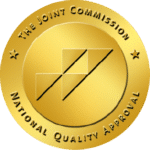The recommended amount of sleep can vary depending on age, lifestyle, and individual needs, but generally, adults should aim for 7-9 hours of sleep per night for optimal health and well-being. However, some people may require more or less sleep than this range.
It’s important to note that sleep quality is just as important as sleep quantity, so even if you are getting the recommended amount of sleep, poor sleep quality can still affect your overall health and well-being. Factors that can affect sleep quality include stress, sleep disorders, caffeine consumption, alcohol consumption, and use of electronic devices before bedtime.
Ultimately, the best amount of sleep is the amount that leaves you feeling refreshed, alert, and ready to take on the day. If you are consistently experiencing daytime sleepiness or other symptoms of poor sleep quality, it may be helpful to speak with a healthcare provider or sleep specialist to identify any underlying issues and develop a plan for improving your sleep.
What does sleep do?
Sleep is a complex process that has a number of important functions in our overall health and well-being. Here are some of the key roles that sleep plays:
- Restoration: During sleep, the body works to restore and repair cells, tissues, and organs. This includes healing and repairing muscles, bones, and other tissues, as well as boosting the immune system and regulating hormone levels. Research has shown that sleep deprivation can impair immune function, leading to increased susceptibility to illness and disease (Besedovsky et al., 2019).
- Memory consolidation: Sleep is essential for consolidating and strengthening memories. During sleep, the brain processes and consolidates information learned throughout the day, helping to cement these memories and improve overall learning and retention. Studies have shown that sleep deprivation can impair memory consolidation and learning (Stickgold, 2013).
- Cognitive function: Sleep plays an important role in cognitive function, including attention, decision-making, and problem-solving. Lack of sleep can impair cognitive function, leading to decreased productivity, poor decision-making, and difficulty learning new information. Research has shown that sleep deprivation can impair cognitive function, particularly attention and working memory (Lim & Dinges, 2010).
- Emotional regulation: Sleep also helps regulate emotions, with studies showing that sleep deprivation can lead to increased emotional reactivity and reduced ability to regulate emotions effectively (Yoo et al., 2007). This may be due in part to the fact that sleep is essential for the proper functioning of the amygdala, a brain region involved in emotional processing and regulation (Etkin et al., 2015).
Overall, sleep is essential for maintaining physical and mental health, and getting enough quality sleep is important for optimal well-being.
References: Besedovsky, L., Lange, T., & Haack, M. (2019). The sleep-immune crosstalk in health and disease. Physiological Reviews, 99(3), 1325-1380.
Stickgold, R. (2013). Sleep-dependent memory consolidation. Nature, 497(7451), 357-363.
Lim, J., & Dinges, D. F. (2010). A meta-analysis of the impact of short-term sleep deprivation on cognitive variables. Psychological Bulletin, 136(3), 375-389.
Yoo, S. S., Gujar, N., Hu, P., Jolesz, F. A., & Walker, M. P. (2007). The human emotional brain without sleep–a prefrontal amygdala disconnect. Current Biology, 17(20), R877-R878.
Etkin, A., Buchel, C., & Gross, J. J. (2015). The neural bases of emotion regulation. Nature Reviews Neuroscience, 16(11), 693-700.
Clear Mind Treatment is specialized in helping folks deal with depression, anxiety, PTSD, and Bipolar. We utilize the best and latest techniques, medicine, and procedures to help people break past their current mood disorder.
Located in L.A. and Scottsdale, AZ and online all over.
Give us a call 310-571-5957 or email us at info@clearmindtreatment.com and check us out at ClearMindTreatment.com








